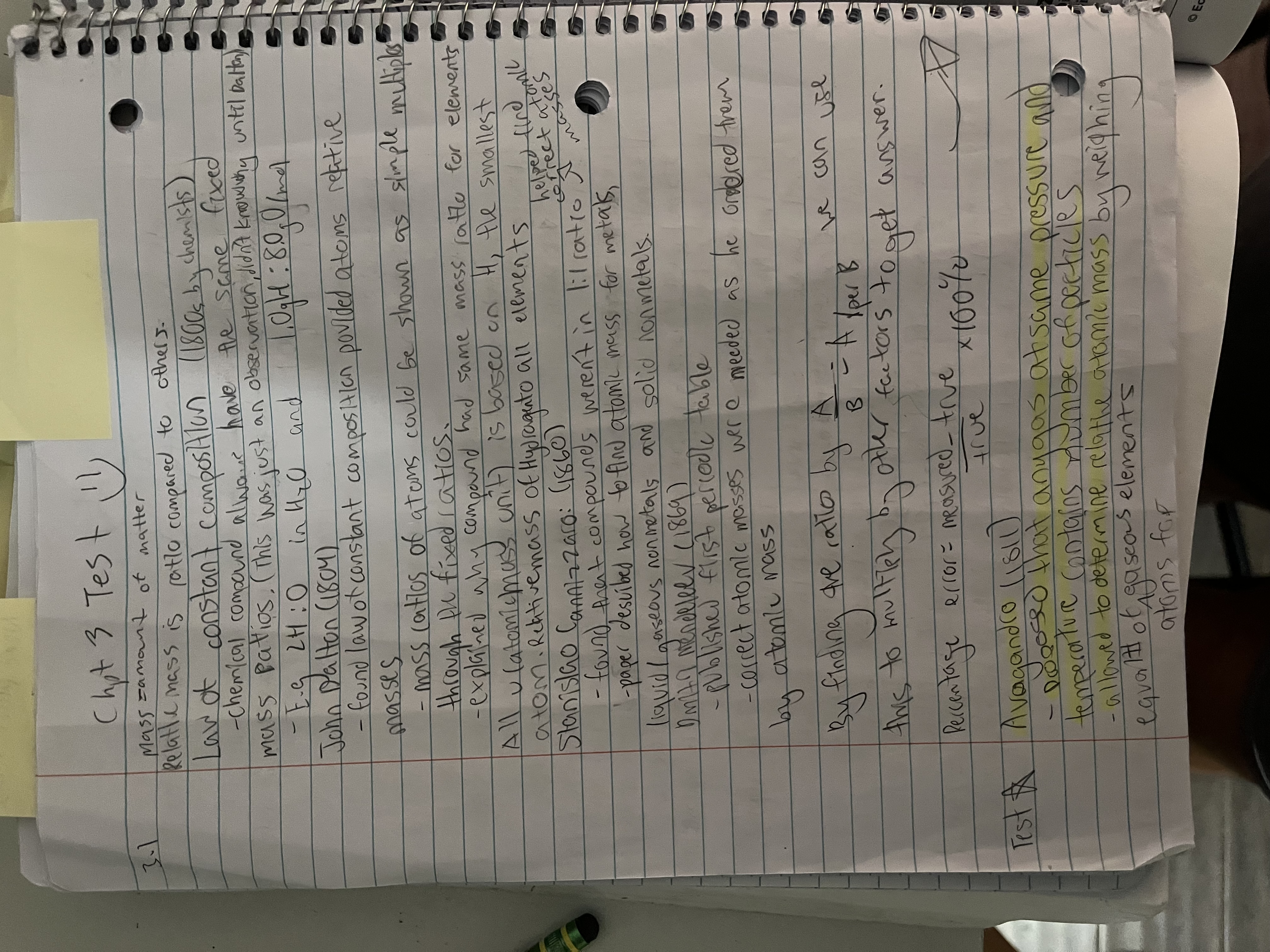What are the key contributions of scientists regarding the mass and composition of matter?

Understand the Problem
The question relates to concepts of mass, composition of matter, atomic theory, and historic contributions to chemistry, particularly focusing on laws and principles established by various scientists.
Answer
Key contributions: Law of Conservation of Mass, Atomic Theory, discovery of the electron, and periodic table.
The key contributions include the Law of Conservation of Mass by Lavoisier, Atomic Theory by Dalton, the discovery of the electron by Thomson, and Mendeleev's periodic table.
Answer for screen readers
The key contributions include the Law of Conservation of Mass by Lavoisier, Atomic Theory by Dalton, the discovery of the electron by Thomson, and Mendeleev's periodic table.
More Information
Lavoisier's work led to the understanding that mass is conserved during chemical reactions. Dalton's atomic theory provided a foundation for understanding the composition of matter. Thomson discovered the electron, reshaping the atomic model, and Mendeleev's periodic table organized elements by atomic mass.
Tips
Misunderstanding Dalton's theory as stating atoms are indivisible. It actually acknowledges subatomic particles.
Sources
- Early Ideas about Matter | Scientists and Research - visionlearning.com
- Dalton's atomic theory (article) - khanacademy.org
- Joseph John “J. J.” Thomson | Science History Institute - sciencehistory.org
AI-generated content may contain errors. Please verify critical information